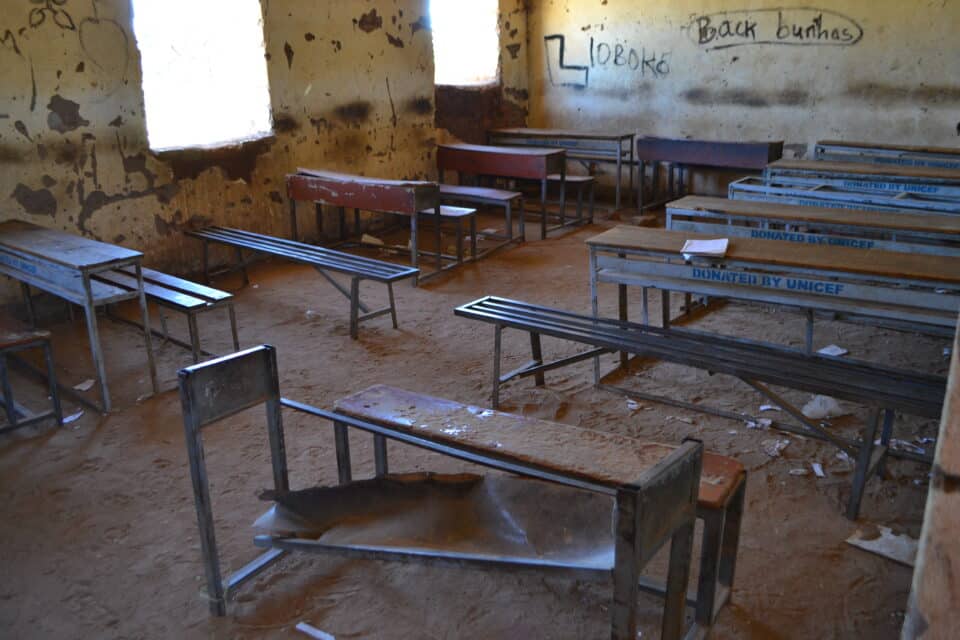Help our local partners realise their vision of hope for their communities

In Sudan, approximately 3 million children are presently out of education. Only 76% of primary aged children attend school, dropping to just 28% when they reach secondary school. In the worst affected area of Blue Nile, only 57% of children are in primary education. In 2019, UNICEF reported that schools across Sudan were closed for 50 additional days due to flooding, demonstrations and other interruptions. Furthermore, female education in Sudan continues to be severely affected and many women have no access to education.
There are multiple reasons why Sudanese education is in this state. Recurring conflicts spanning the last 50 years have interrupted the education of hundreds of thousands of Sudanese through targeted attacks on schools and the displacement of people. Education is scarce in refugee camps, whilst teachers are driven from their homes, stopped from training and relocated in areas without schools or resources.
Moreover, cultural attitudes towards education have dissuaded many from pursuing or continuing their education. School is still seen by many as a luxury and an interruption of a rigid way of life. The reliance of the Sudanese population on subsistence farming means that children are required to stay home to work from a young age. Children provide much needed labour for families struggling to survive. This has been exacerbated by many schools demanding fees for education in spite of the Sudanese government policy of free education.
Women are doubly affected by cultural attitudes. Many Sudanese communities believe the traditional role of the woman is to stay at home. They see little benefit in educating young women. Many young women are also forced to marry young and produce children of their own, further preventing them from receiving an education.
In addition to Sudan’s difficulties getting children into classrooms, the quality of learning in the country is poor. The Sudanese Ministry of Education recently identified that in South and East Darfur, 3,692 of the approximately 7,000 teachers in the region are unqualified. Unfortunately, many teachers across Sudan are untrained and unsupervised, teaching curriculum with little educational value. Furthermore, the environment of many schools is often not conducive to learning and perpetuate negative social attitudes. The education of women in many schools is not taken seriously or encouraged. This is worsened by the poor standard of sanitation and hygiene in many schools which is particularly damaging to the education and retention of young women and girls.
Another issue which limits educational progression and achievement is the retention of students in secondary education. The majority of students who complete the first eight years of primary education do not continue on. Many are required to work, whilst others do not have access to secondary education in their local area.
Aid can make a huge difference to the availability and quality of education in Sudan. Funding and expertise are desperately needed in many regions, to pay and train teachers, to provide schools with resources and suitable facilities and to make sure that children have the opportunity to continue their education. The construction and improvement of schools across Sudan is vital if the education gap is to be reversed and education can recover. This is often difficult however and issues such as slow procurement of resources, poor coordination of processes, limited cash availability for contractors and insufficient monitoring hamper and halt projects.
Here at HART we are lucky enough to work with inspirational local partners across the world. This puts us in a unique position to fund and support community driven projects with local expertise by assisting our in-country partners to source resources, coordinate and monitor projects. We are currently fundraising for projects in Abyei, the administrative zone between Sudan and South Sudan to improve education in the area.
If you wish to support HART’s educational initiatives in Abyei, click here, https://www.hart-uk.org/donate/
By Max Elgot, Fundraising Intern